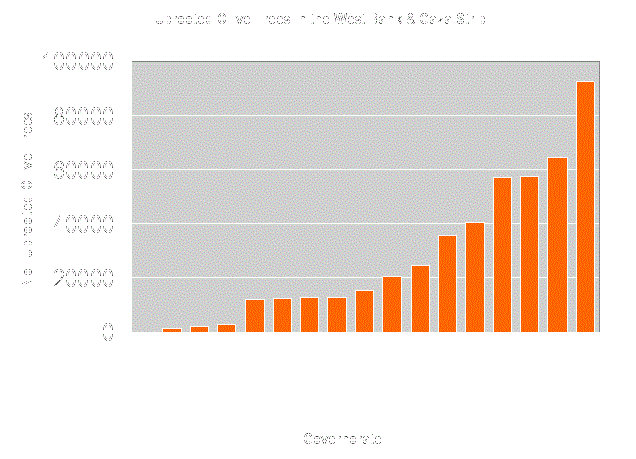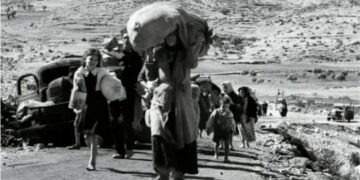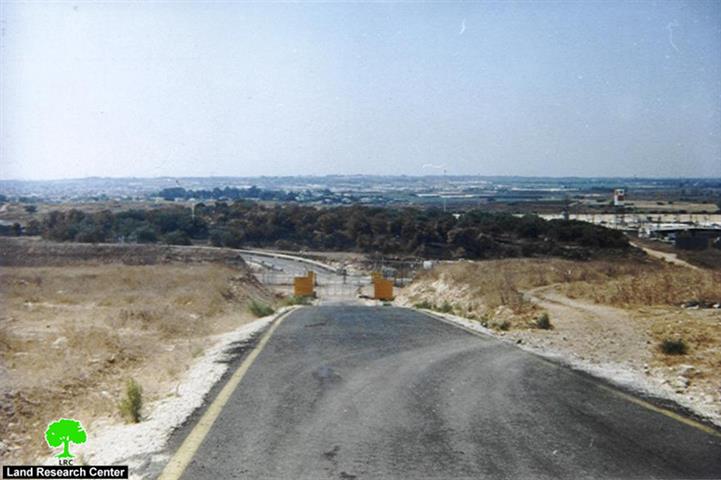Overview:
The Olive tree, signify history, tradition and a long relation between the farmer and the land, other than that, it is portrayed as a mark of peace, prosperity and extended existence through time. In the holy land, the olive tree no longer symbolizes peace but sufferer as targeting of olive trees became an Israeli strategy and uprooting olive trees became a systematic procedure adopted by the Israeli Army and a conceded act of the Israeli settlers throughout the past 39 years of Israeli occupation. This criminative Israeli act has had big affects on the Palestinian agriculture, economy, and identity. Olive trees products have always provided a source of livelihood to thousands of Palestinian families from centuries to this day as it represented some 40% of total icome of fruitful trees in the Palestinian territory..
Over the years of Israeli occupation, the olive harvest season became somewhat a source of agony and despair after being once a source of joy and of a festive nature. The Israeli imposed restrictions during the olive harvest season has caused many disturbance to the Palestinian farmers, denying Palestinian farmers access to the lands, confiscating or damaging olive harvests, attacking the farmers while harvesting and in many times and locations releasing dogs on Palestinian farmers to terrorize them to leave the fields.
It became easier for the Israeli Army and settlers to harass the Palestinian farmers during the olive harvest season, since the bulk of olive groves are located within areas defined as area 'C' where Israel has complete control, and the Palestinian Authority has none. The Israeli Army has declared many areas during the olive harvest season as 'closed military areas” where Palestinians are required to receive permits issued from the Israeli civil, administration to let them enter areas where the olive grooves are located.
Israeli has targeted the olive trees throughout its ongoing occupation of the occupied territory as a systematic aggression to divest the lands from its Palestinian owners. Hundreds of thousands of olive trees were uprooted in the Palestinian territory over the years to build Israeli settlements, construct bypass roads, and establish security bases; however, the number of the uprooted olive trees has been doubled since Israel started constructing the Segregation Wall and the security buffer zone that goes along with it. According to ARIJ GIS database, more than 1.2 million (1.2%+) olive trees were uprooted since 1967 out of 12+ million olive trees in the Palestinian occupied territory.
What is it that Israel trying to achieve in its war against the olive trees?
The olive tree is an encoded element of the Palestinian identity and culture. The relation, which evolved over centuries between the two steady elements of this land; man and olive had its prints on the various aspects of Palestinians lives, mainly, social and economic.
According to Palestinian Ministry of Agriculture statistic report, the number of olive trees uprooted and destroyed as of the breakout of the second Intifada in September 2000 until 31/12/2005, Israel uprooted (464,945) olive trees in the West Bank and Gaza Strip, (157,831) in the West Bank and (307,831) in Gaza Strip. For more clarification table 1 and chart 1&2.
Table 1 of the Uprooted Olive Trees in the West Bank & Gaza Strip during the Intifada from 28/9/2000—–31/12/2005
|
Table 1 of the Uprooted Olive Trees in the West Bank & Gaza Strip during the Intifada from 28/9/2000—–31/12/2005
|
|
|
Governorate |
No. Uprooted Olive Trees |
|
Jericho |
30 |
|
Tubas |
1,176 |
|
Dura |
2,197 |
|
Jerusalem |
2,821 |
|
Tulkarem |
12,099 |
|
Jenin |
12,664 |
|
Ramallah |
12,787 |
|
Qalkilya |
12,815 |
|
Salfit |
15,278 |
|
Hebron |
20,245 |
|
Bethlehem |
24,707 |
|
Nablus |
40,295 |
|
Total Uprooted Olive Trees in the West Bank |
157,114 |
|
Gaza |
57,285 |
|
Deir Al-Balah |
57,563 |
|
Khan Younis |
64,408 |
|
Northern Gaza |
92,644 |
|
Rafah |
35,931 |
|
Total Uprooted Olive Trees in Gaza Strip |
307,831 |

Chart 1 of the Uprooted Olive Trees in the West Bank & Gaza Strip according to
districts during the Intifada from 28/9/2000—–31/12/2005

(Chart 2 shows the Uprooted Olive Trees in the West Bank & Gaza Strip during the Intifada from 28/9/200031/12/2005
Legal & International Status:
Uprooting Olive trees by the (Israeli Occupation Forces) in West Bank and Gaza Strip miss the minimum degree of legitimacy and legality and contradicts with many International law rules and regulations and agreements such as 'Paris Protocols', 'Geneva Convention',' Hague Convention'.
- Uprooting of Olive trees violates the trade policies of the Paris protocols of 1954 which calls for 'free access for Palestinian goods to the Israeli market and vice versa.' The curfews and the uprooting are a clear violation of this clear security.
- In addition, the uprooting and the closures are a clear violation of Article 23 of The Hague Convention, which provides that: 'it forbidden to destroy or seize the enemy's property, 'unless such destruction or seizure be imperatively demanded by the necessities of war'.
- Land Leveling and property destruction carried out by the Israeli Occupation Forces violate the Fourth Geneva Convention and is a war crime under the convention and the protocols additional to the convention.
Article 33 of the Forth Geneva Convention prohibits collective punishment, and land leveling and property destruction carried out by Israeli forces are collective punishments. The article states: 'No protected person may be punished for an offence he or she has not personally committed. Collective penalties and likewise all measures of intimidation or of terrorism are prohibited.”
Article 53 of the same convention provides that 'any destruction by the Occupying power of real or personal property belonging individually or collectively to private persons, or to the State, or other public authorities or social or cooperative organizations is prohibited, except where such destruction is rendered absolutely necessary by military operations.'
Article 147 of the convention considers 'extensive destruction and appropriate of property, not justified by military necessity and carried out unlawfully and wantonly' as a grave breach of the Convention and thus constitute a war crime.
Prepared by
The Applied Research Institute – Jerusalem
ARIJ












